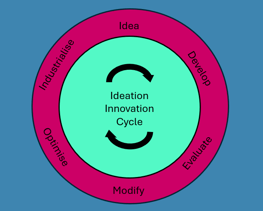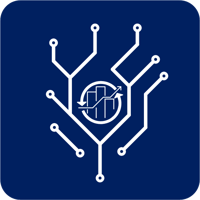
Services provided by i²s².tech
Our mission is to accelerate companies from ideation to profitable sales. We provide sales, engineering and technology consultancy services for SMEs, Start-ups and established companies needing to transform and accelerate business performance.





Invest
External & Internal
Innovate
Ideation & Implementation
Scale
Optimal Product Economics
Sell
Sales, Margin, Growth
Accelerating technology companies from ideation to profitable sales
Our approach is tailored to each client and follows 4 fundamental business pillars which include; investment, innovation, scalability and selling.
Strategy validation
Blinkered about the selected strategy with wishful thinking. Confusing goals with strategy. i²s².tech challenge, validate and as appropriate recommend how to optimise the plans. We help to ensure there is underlying magic.
Market analysis
“Hockey stick” revenue projections inherently result from over optimistic market predictions and assumptions. Deep knowledge of; market size, entry requirements and market dynamics help to create realistic go-to-market plans.
Customer problems to solve
Customers use new products, services or suppliers because they can’t solve existing problems. Getting under the skin of customer challenges is imperative to create real value.
Competition capability
Competitors don’t give up on existing markets or current business. Understanding their capabilities, weaknesses and how to outmaneuver them is vital to the success of any strategy. Extensive competition analysis is always required.
Introduction of new suppliers or solutions is always a risk for customers. The risk is offset by the gains achieved. Solving problems with significant value is the winning equation.
Solution differentiators
Business model
A solution to a problem is only of value if key stakeholders and decision makers are aware of it. Identifying and creating sponsors within customers is paramount. Direct, indirect and partnering are all viable routes to customers.
A deep dive strategy review and validation of underpinned business plans include:
Access to target customers
Solving a customer challenge once is not enough. Showing a roadmap delivering sustainable value, ensuring the customer remains competitive will be part the supplier and product selection process.
Business models strive to maximise growth and profitability. Customers seek clarity and simplicity. New innovative models are embraced if they are easily implemented and can be governed.
Sales strategy and infrastructure
Focus delivers commercial success. High performance execution across a manageable customer base creates a platform for scale. Breaking into new customers is achievable if the sales stage process is managed effectively.
Organisation to deliver
Once the strategy is baked, organisational structure is crucial for execution. Processes and governance ensure delivery of critical milestones. Avoid the obvious mistakes of creating a strategy to fit the organisation.
Viable financials
Optimistic forecasting and opportunity hype are common themes. Anchored revenue forecasts with sensitivity analysis create credible commercial plans. Constant reviews of pipeline status and confidence for conversion are the dashboard for growth.
Competitive sustainability
External investments
Internal investments
With a breadth of experience across a vast array of strategic internal investments, i²s².tech ensure companies avoid pitfalls and risks to ensure projects reach their full potential.
Foundations for profitable internal investment decisions include:
Competitor benchmarking
When a product solution or service is proposed for internal investment, the business case must include competitor benchmarking with extrapolation. You will be competing with future products not those that exist currently.
Product strategies
Product strategies are the playbook of how and why you will be successful. They start with the problem being solved through to the solution and commercial strategy. Ease of customer use through “design-with” tools are essential.
Viable development budgets
Development is rarely flawless. Unforeseen challenges and delays impact both project planning and project costs. Realistic planning with contingency helps safeguard and deliver profitability projects.
Resource competence and allocation
Internal projects must be resourced for success. Poor resourcing decisions typically prevail due to budget constraints. Project resources also suffer when problems need addressing. Critical investments benefit from ring-fenced resourcing and management.
Measurement & governance
What gets measured gets done. Transparency of project execution results is vital to timely management decisions and corrective actions. Visibility at an executive level may be required for strategic directives.
Lead customers
Engagement with lead or “alpha” customers continually validates that the investment value proposition still solves the customer problem. This also ensures further customer optimisation, creating “stickier” product solutions or services .
Innovation
Product ideation and innovation are intrinsically coupled together. Ideation generates concepts for new products or services that don’t exist today. Innovation is required to design and develop the idea into a manufacturable, deployable and scalable solution. Surprisingly, a high proportion of products never reach the market and fail. The two main reasons are; the product idea never had a market to start with or the product could not scale and achieve the required product economics. Through our combined fractional CTO and CRO services i²s².tech provide valuable guidance and steering to achieve successful product solutions.
A natural consequence of development teams being immersed in the ideation phase is that they can become blinkered. Intensive focus can result in a development being pushed through despite the lack of appropriate market research, customer and competitor insights. Successful product launches can be achieved following some proven i²s².tech approaches:
Ideation phase
Idea
Idea solves a real need and has underlying magic
Brainstorm multiple solutions and prioritise
Assess for core competence, DFM and scalability
Market
Qualified market data is available
Market growth is sustainable
Pricing supports profitable product economics
Customer
Access to customers to validate solution
Critical Insights gained from key stake holders
Evaluation of alternative customer options
Competition
Competitors clearly identified
Benchmark solutions with extrapolation
Significant value creation possible
Innovation phase
Innovation strives to solve customer problems with differentiation, ease of use, scalability, low-touch support and above all achieving commercial product economics. This is the core approach of i²s².tech.
Develop
Creative ways to implement solution
Focus on low touch system integration
Customer design autonomy and ease of use
Evaluate
Evaluate and stress test solution
Set a bar for excellence based on benchmarking
Identify and specify areas of improvement
Prioritise areas of highest value improvement
Innovate to create distance from competitors
Constant simplification for customer usage
Modify
Optimise
Optimise design ensuring DFM and scalability
Ruggedise design for reliability
Validate product economics are achievable
Industrialise
Unique differentiation can be achieved
Undisputed value can be created
Core competence matches viable solution
Innovation


Industrialise for quality and repeatability
Successful pilot production
Yield improvement for cost, volume and margin




Scale for operational and profitable success
At i²s².tech we simplify scaling into two distinct areas. Firstly, can the product or service support more customers without increasing resources proportionally? Secondly can the solution performance grow to increase features, attracting new customers? Both are important factors that are coupled and require a robust scaling strategy.
Scaling strategy and what is involved
Clear product economic goals
Manufacturing capability and capacity
Technical and quality robustness for volume
Roadmap for new features
Supply chain infrastructure and flexibility
Organisational structure including systems
Scaling project plans and underpinned budgets
Risk mitigation planning
Analysis and monitoring of scaling results
With extensive experience across development processes and a broad range of product launches, i²s².tech enable customers to achieve profitable commercial goals and sustainable competitive advantage.
Product economics
Manufacturing and operational cost structure that decreases with volume. Profits scale with increased customers.
Manufacturing proof of concepts compared with high volume requires DFM, investment and detailed planning. Navigating outsourcing options requires a structured approach.
Applies to production and solutions deployed. Modelling and stress testing is required to ensure scalable robustness.
Manufacturing
Technical and quality robustness
Product design and capability must be future proofed for new features and use cases. Structured road mapping ensures sustainable competitivity and value.
Supply chain
Intrinsically linked to DFM and the components that create the solution. Transitioning from pilot production to volume production requires a flexible low cost infrastructure.
Organisation
Successful innovation will address scaling without proportional resource increases. System development required to achieve low touch support and customer design autonomy.
Scaling plans and budgets
Detailed project plans and realistic budgets are paramount. Commercial success will be dependent on capitalising on increased demand which may be difficult to forecast.
Risk mitigation and scaling analysis
Risks mitigation plans are essential to scale a product. Delayed launches result in missed revenue. Monitoring performance underpins execution and allows for any immediate corrective actions.










Product roadmaps
Sales leadership and acceleration
Most companies want to accelerate through the sales process to capture market share and generate immediate revenue as fast as possible. Revenue can get delayed if the correct resources and experience need to be hired and onboarded into the company. Engaging i²s².tech fractional CRO, VP of sales services gives the immediate injection of sales skills to ensure your unique value proposition gets traction in the market and maximizes commercial return. When engaged, we follow and implement a proven and structured process.
i²s² sales acceleration framework
Validation of customer challenges
Solving problems with definitive value
Staying ahead of competition
Underpinned product sales strategies
Executable
Opportunity discovery process
Pipeline management & conversion
Profitable & repeatable sales
Sales acceleration
A real sales opportunity with high probability to convert to revenue follows a time-line associated with the customers market and product life cycles. Tracking opportunities through the sales stage with the relevant timings enables better predictability of revenue conversion. The i²s².tech sales process focuses on external activities and progression through definitive sales stages.
Definition and selection of target customers
Marketing awareness campaigns
Sales collateral
Demonstrable value propositions
Clear commercial strategy
Direct and indirect sales channels
Opportunity discovery process
Prospect identification and connection
Prospect engagement with solution introduction
Customer optimised follow-up
Creation of customer sponsorship
Opportunity creation (trial project)
Opportunity qualified
Pipeline management & conversion
Delivering "say-do" factor proof points
Quotation process
Quotation feedback and optimisation
Negotiation and closing
Product commercial contracts
Ramp-up readiness
First volume orders
Profitable and repeatable sales
Customer ramp-up support
Mass production phase
Forecast and supply chain management
Optimisation of costs
Margin management
Differentiating customer service
Sales budgets and KPI's
Pre-sales process
Sales execution - 10 sales stages
Go-To-Market
Plans
Executable
Go-To-Market
Plans
